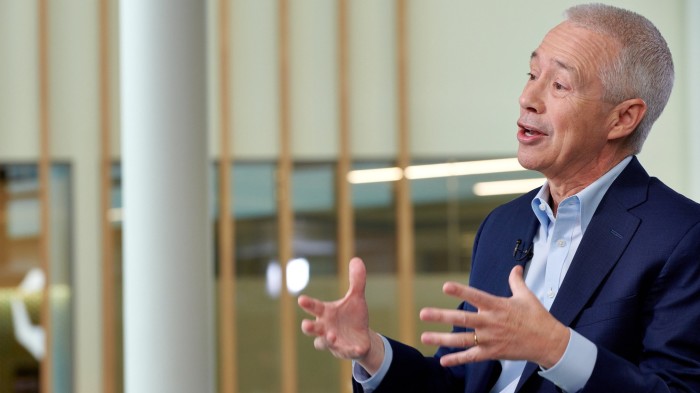Stay informed with free updates
Simply sign up to the Pharmaceuticals sector myFT Digest — delivered directly to your inbox.
The chief executive of Johnson and Johnson has warned that potential US tariffs on the pharmaceutical industry could lead to shortages of medicines.
The industry was excluded from wide-ranging tariffs announced this month, but the Trump administration has made it clear that it is considering using them to try to boost domestic manufacturing.
The US currently has no tariffs on pharmaceuticals because of an exemption in the 1994 World Trade Organization trade deal.
Joaquin Duato, who leads one of the world’s biggest pharma and medical device companies, said in a call with analysts on Tuesday: “There’s a reason why pharmaceutical tariffs are zero. It’s because tariffs can create disruptions in the supply chain, leading to shortages.”
Medical devices and technology, like the surgical robots made by J&J, have been hit by the new US tariffs.
“If what you want is to build manufacturing capacity in the US, both in med tech and in pharmaceuticals, the most effective answer is not tariffs but tax policy,” Duato said.
In March, J&J announced it would invest $55bn in new plants in the US over the next four years, which it said was a 25 per cent increase in investment compared to the previous four years.
On Monday, the US administration said it had started an investigation of the national security implications of relying on imports of medicines. The probe was started on April 1 and will consult for 21 days.
Duato said that he thought it was important for healthcare companies to work with the administration to “mitigate some of the vulnerabilities that exist . . . in our healthcare supply chain”, in response to a question about the investigation and potential tariffs.
J&J’s chief financial officer Joe Wolk said the company wanted “to be deferential to the administration and their process”.
The pharmaceutical industry has generally refrained from publicly condemning the tariffs, hoping that behind-the-scenes negotiations will prevail. But Duato’s comments come after Michel Demaré, AstraZeneca’s chair, warned on Friday that tariffs could harm patients, health systems, and “restrict health equity”.
In results published on Tuesday, J&J maintained its adjusted diluted earnings per share forecast for the year of $10.50-$10.70, despite factoring in $400mn in costs related mostly to tariffs on medical devices.
Its sales in the first quarter of the year were $21.9bn, up 2.4 per cent from the same period last year. Analysts had expected $21.6bn.


